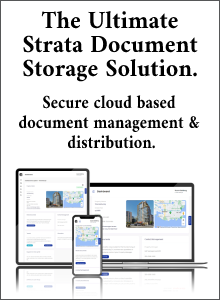A depreciation report for strata corporations in British Columbia is a document that outlines the current condition and estimated remaining useful life of the common property and assets of a strata corporation. The report is typically prepared by a professional engineer or other qualified person, and is used to help the strata council plan for and budget for future repairs and replacements of common property and assets. The report also contains information on the replacement cost of the assets and the estimated reserve fund. This report is mandatory for Strata Corporations in British Columbia to have after 2010.
1. Planning and Budgeting
A depreciation report helps a strata corporation plan for and budget for future repairs and replacements of common property and assets. This information is critical for the strata council to make informed decisions about how to allocate resources and maintain the building.
Planning and budgeting are indispensable aspects of efficient strata management. A depreciation report is a valuable tool for strata councils to make informed decisions about the planning and budgeting of repairs and maintenance on common property or assets. Such a report provides detailed information, including estimated lifecycles and replacement costs, that can enable planning for both short-term repairs as well as long-term projects. Armed with this document, members of the strata council can work constructively to ensure that resources are allocated appropriately and that potential risks are addressed in order to maintain a high standard and integrity for the building.
2. Legal Compliance
In British Columbia, strata corporations are required to have a depreciation report after 2010. Failing to have one can result in legal penalties.
In British Columbia, strata corporations must take the essential step of obtaining a depreciation report after 2010 in order to stay compliant with legal standards. The penalties for not having one can range from suspension of strata services to financial fines – this could cost both time and money if penalties are incurred. Even though obtaining a depreciation report is mandated by law and can be intimidating, it is necessary to ensure that your strata property remains complaint and meets legal requirements.
3. Asset Management
Depreciation reports provide an overview of the current condition and estimated remaining useful life of the common property and assets. This information is useful for the strata council to prioritize repairs and replacements and to make informed decisions about the maintenance of the building.
Asset management is an important part of ensuring that a strata building remains value-driven, and depreciation reports provide a helpful overview of the current condition of common assets and properties in order to help the strata council make informed decisions. This ensures that strata owners can maintain their asset, with necessary repairs and replacements prioritized according to expected remaining useful life, thereby preserving its value over the long term. Asset management is integral to keeping buildings in safe, good condition.
4. Contingency Reserve Fund
Depreciation reports also provide information on the replacement cost of the assets and the estimated reserve fund. This information is important for the strata council to plan for how to fund future repairs and replacements and to ensure that the reserve fund is sufficient to cover the costs.
The contingency reserve fund and the accurate information it provides are essential for the effective financial planning of any strata council. Depreciation reports allow detailed, up-to-date insight on the replacement costs associated with maintaining the building, enabling council to budget life cycle expenses and plan future repairs. A reserve fund that is large enough to cover these costs can ensure that owners are not faced with unexpected levies or special assessments. It is also important to consider that good maintenance of shared property or buildings can help protect its value. With detailed reserve fund information available in depreciation reports, strata councils have the opportunity to best manage their resources for monthly budgets and anticipated expenditures.
5. Transparency and Fairness
Depreciation reports provide transparency to the strata owners about the condition of the building and the estimated costs of future repairs and replacements. This information is important for the strata owners to understand the financial health of the building and to make informed decisions about their investment in the property.
Transparency and fairness are essential in providing direction for strata management teams. By offering depreciation reports to strata owners, transparency enables them to understand the financial health of the building, make well-informed decisions about their investment in the property, and distribute shared budgeting costs equally among all owners. With this information being made available, it increases awareness and allows everyone involved to work together as a team towards common goals by having detailed data on hand. As a result, this helps foster a sense of communal transparency and equality throughout the property.
Not Legal Advice - The material provided on the StrataPress website is for general information purposes only. It is not intended to provide legal advice or opinions of any kind and may not be used for professional or commercial purposes. No one should act, or refrain from acting, based solely upon the materials provided on this website, any hypertext links or other general information without first seeking appropriate legal or other professional advice. These materials may have no evidentiary value and should be checked against official sources before they are used for professional or commercial purposes. Your use of these materials is at your own risk.

